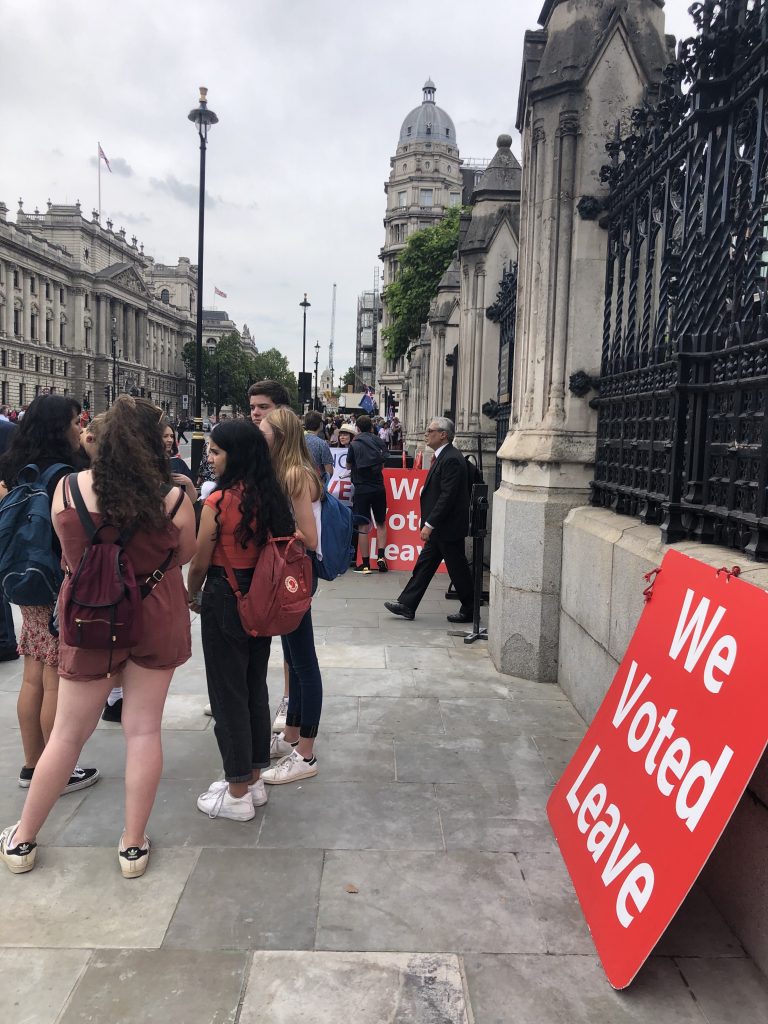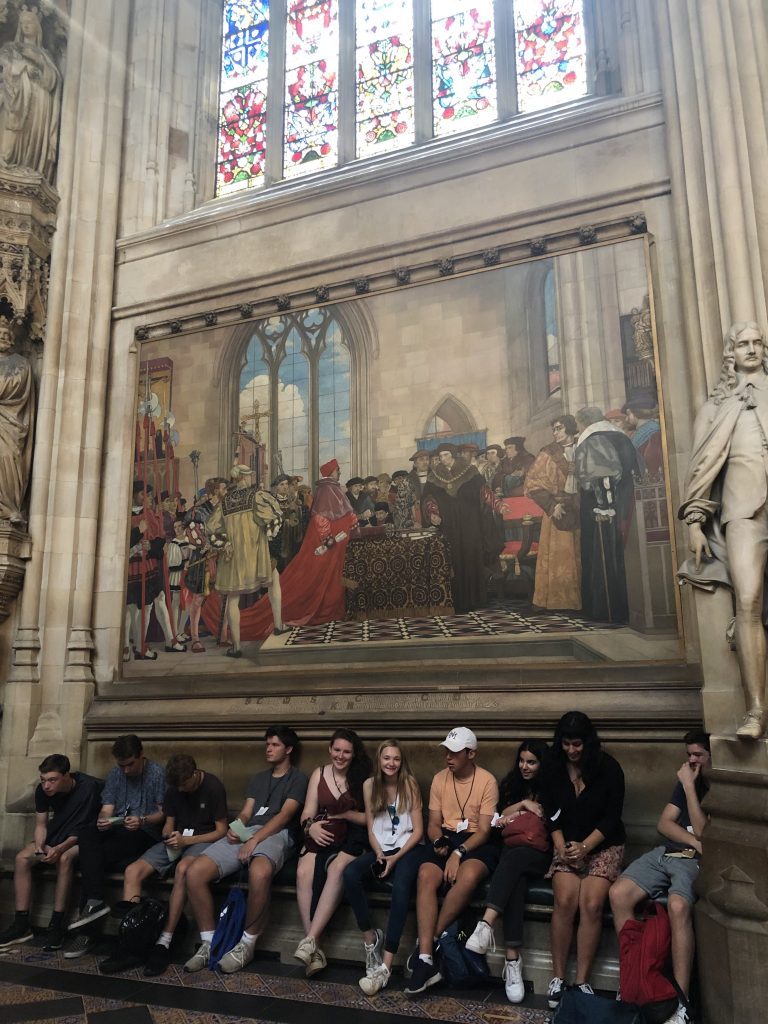Today we attended a European Scrutiny Committee session titled “Post-Brexit Scrutiny of EU Law and Policy,” in which the speaker of the House of Lords and a few other MPs directed questions toward two professors of law. We were all shocked to realize that, three years after the Brexit vote, the purpose of this committee meeting was essentially to provide the MPs with an understanding of how Brexit might affect general UK legislation and trade regulations. We had assumed, despite the obvious confusion expressed by UK citizens and international observers, that at least the politicians at the highest level of UK politics would have a solid working knowledge of the implications of various Brexit strategies. Not so! Question after question, and answer after answer, revealed the overwhelming complexity of the situation at hand. We struggled to keep pace with the conversation, as it was conducted primarily in the specialized languages of law and economics, and referred constantly to a lengthy document that we did not have access to. Regardless, we came away with wide eyes, exciting leads to explore in our class discussions, and a newfound appreciation for the scope of challenges the UK currently faces. We all were amazed that we, a group of eleven foreigners, were allowed to sit in a room smaller than your average high school classroom with a group of ten politicians to witness the inner workings of a government in arguably its greatest period of crisis in our lifetimes thus far.
Our visit to parliament and exploration of the topic of Brexit would have been incomplete without civic discourse. We had ample opportunity for this, as there were “Brexiteers” and “Remainers” alike canvassing outside the gates. The students engaged in respectful dialogue to learn about citizens’ perspectives who feel passionately that the best path forward for the UK is a hard-line Brexit in which all ties to the EU, economically and legislatively, are severed and the UK is left to self-determination of law and trade. All students in this seminar are strongly opposed to this position, yet they demonstrated great maturity and capacity for critical thinking as they sincerely considered these UK citizens’ perspectives. I was beyond impressed by how the students took agency over their own education during each piece of our experience at parliament. As I write this, I am filled again with the sense of excitement and wonder we felt that day.
— Becca & the IR seminar



